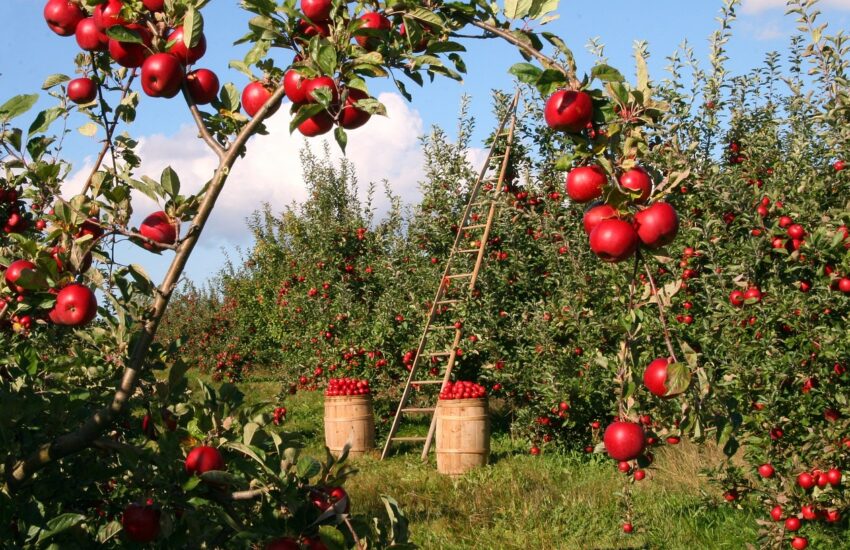A culture of greed that burns Mother Earth’s resources is being fostered by the rapid increase in the global population. This gives us no choice but to find and stick to our roots to curb the greed and path to ecological collapse. Finding the roots of native farming with scientific and technological methods led us to organic farming. Organic farming is also widely known as ecological farming or biological farming. The modern approach to organic farming was inspired by the movement toward sustainable living. This form of farming is being regulated and standardized by the internationally recognized organization, the International Federation of Organic Agriculture Movements (IFOAM). According to a survey, certified organic farmland is around 70 million hectares globally. Australia alone contributes 51%, which is an achievement of global majority.
Why organic farming?
Organic farming allows the farming land to be self-sufficient and independent. This style of farming focuses on the use of natural fertilizers like manure, green manure, bone meal, and compost. This approach to farming allows the land to be more sustainable. Organic farming supports biodiversity and ecological protection at a local level. Organic farming has benefits like:
● reduces wastage, soil contamination and drought.
● provides food safety and healthy produce.
● natural fertilizers used for cultivation and farming livestock are not artificial and chemical-free
● gives the product a better taste and makes it richer in nutrients.
● improves the soil and restores fertility
● creates employment opportunities in the field of agriculture.
● Prevents exploitation of farmers by the middlemen
● Economically benefit the farmers.
● cost effective method of farming.
How is it done?
Organic agriculture is done without the use of synthetic fertilizers and pesticides. This form of farming has major practices that contain:
● crop rotation- It refers to the practice of growing several crops on the same plot of ground in a particular pattern.
● cover cropping-To keep the soil healthy, rows of rye or clover are planted in between commercial crops
● Composting- recycling plant waste like weed, vegetable peels by decomposing for making manure
● organic seed use- use of organic seeds over genetically modified seed (which are also known as hybrid seeds) to have a better result
● natural pest control- using plant based extracts like neem oil as insect repellent.
How is a land converted to an organic farmland?
With the rising trend of organic farming, the need to convert a farming land to organic farming land is also increasing. The time taken to convert a land and get certified as an organic land takes around two to five years or more depending on the history of the land. The following stepa are taken to convert a land to organic farming land:
● Research on the land is necessary before converting a farming area.
● The reports of the land should be used to determine the conditions needed to maintain healthy soil.
● To restore the soil’s fertility, certain actions such as growing cover crops, adding legumes, compost, and organic matter are required.
● Finally the land should be in a condition that meets the standards for organic certification.
How did the idea of Organic Farming came to existence?
The idea of organic farming was developed by Sir Albert Howard, F.H. King, Rudolf Steiner, and others in the early 1900s. Howard worked as an agricultural researcher in India; the traditional farming approach used in India inspired him and gave birth to the idea of organic farming. He took the concept back to the West and emphasize the adoption of this practice. The sustainability of using organic waste by reusing it to improve production and maintain self-reliant biodiversity sparked the idea of having a scientific and modern approach to biological farming. Also, studies suggest that organic farming can enhance biodiversity in addition to the general public’s health. According to several statistics, organic farming around the globe boosts local species richness by 34% and thriving by 50%.
Limitations of organic farming:
Organic farming, like any coin, has two sides with potential benefits and drawbacks. Unlike commercial farming, organic farming gives:
● low yield, which raises the need for additional land for farming. The need for additional land affects biodiversity and causes severe climate effects. The need for land for organic farming causes the loss of habitat for wildlife.
● As the land survives and relies on a closed nutrient supply, the method may not be effective enough to enhance and manage soil health. This also affects fossil fuel emissions.
● The nitrogen leaching and fixation for organic farming cause excess nutrients, which affect the water bodies around the area, causing algal blooms and subsequent dead zones.
● The lack of proper infrastructure and education on organic farming makes it difficult to achieve a complete understanding of the market and practices.
● Due to the lack of artificial preservations, the products from organic farming have a shorter lifespan compared to those from commercial farming.
● For consumers, organic products are expensive, so they prefer affordable products.
Attempting to feed the entire world’s population just through organic farming is insufficient and has catastrophic consequences for the ecosystem.
